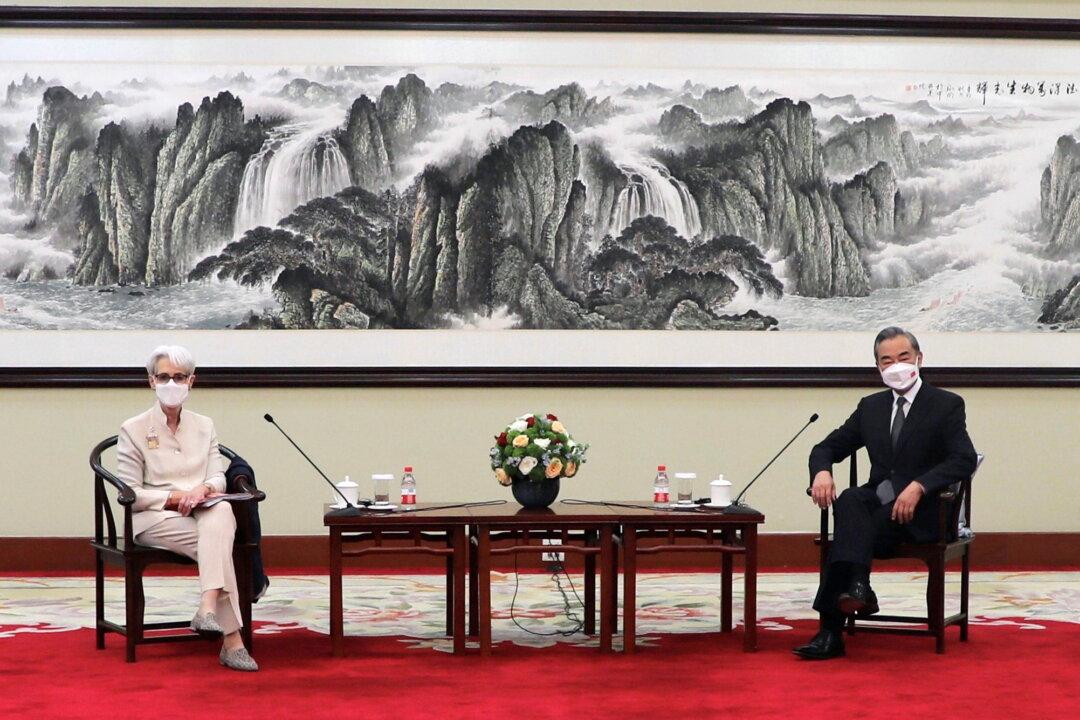The Chinese regime had a field day pushing anti-American propaganda in the aftermath of high-level diplomatic talks between the two countries.
On July 26, U.S. Deputy Secretary of State Wendy Sherman met separately with Chinese Foreign Minister Wang Yi and his deputy Xie Feng in the Chinese port city of Tianjin. Beijing’s confrontational manner, dubbed “wolf warrior” diplomacy, was on full display, with the two officials leveling a range of accusations about the United States’ alleged “wrongdoings,” according to statements emerging from the meetings.




